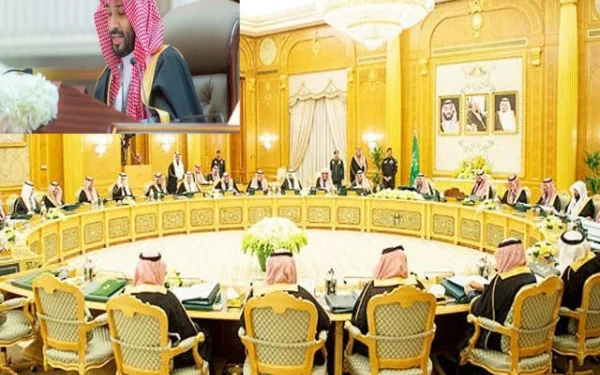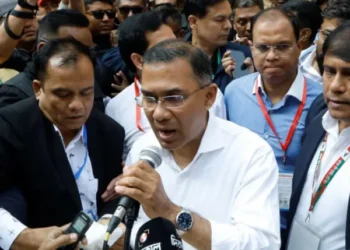Riyadh: In a significant development aimed at strengthening bilateral ties, the Saudi Cabinet, under the leadership of Crown Prince Mohammed bin Salman, has approved multiple cooperation agreements between Saudi Arabia and Pakistan. These agreements encompass various sectors, including customs, vocational training, and security collaboration, reflecting the growing partnership between the two brotherly nations.
Strengthening Bilateral Ties through Customs Cooperation
One of the key agreements approved during the Cabinet meeting pertains to mutual assistance in customs matters between Saudi Arabia and Pakistan. This agreement is expected to streamline trade operations, enhance transparency, and improve coordination between the customs authorities of both countries. By fostering greater cooperation in customs affairs, the two nations aim to facilitate smoother trade flows and combat smuggling and other illegal activities that hinder economic growth.
Pakistan and Saudi Arabia share strong economic and trade relations, with Saudi Arabia being one of Pakistan’s largest trading partners. The newly approved agreement will ensure better information exchange and enforcement mechanisms, making cross-border trade more efficient and secure. This move aligns with Saudi Arabia’s Vision 2030 economic reform plan, which seeks to diversify the kingdom’s economy and strengthen trade ties with key partners like Pakistan.
Enhancing Vocational Training and Technical Cooperation
Another major development from the Cabinet meeting was the approval of a Memorandum of Understanding (MoU) on technical and vocational training. This MoU will be implemented between Saudi Arabia’s Technical and Vocational Training Corporation (TVTC) and Pakistan’s National Vocational and Technical Training Commission (NAVTTC).
This agreement aims to enhance skill development programs, exchange expertise, and promote joint training initiatives to equip workers with modern technical skills. As Pakistan has a large workforce, this cooperation will enable Pakistani workers to receive specialized training, improving their employment prospects within Saudi Arabia and other Gulf Cooperation Council (GCC) countries.
For Saudi Arabia, the agreement supports its Vision 2030 goals by ensuring that industries have access to a well-trained workforce capable of meeting the needs of an evolving economy. Given that a significant number of Pakistani expatriates work in Saudi Arabia, this initiative is expected to increase their competitiveness in the job market, ultimately benefiting both nations.
Regional Security and Scientific Cooperation
Beyond trade and workforce development, the Saudi Cabinet also approved negotiations for a Memorandum of Understanding between the Ministries of Interior of Saudi Arabia and Egypt. This agreement focuses on scientific research, training programs, and security cooperation. While it primarily involves Saudi Arabia and Egypt, it signals the kingdom’s broader commitment to regional security collaborations, which could indirectly benefit Pakistan.
Pakistan and Saudi Arabia have historically enjoyed strong defense and security ties. Both nations have collaborated on counter-terrorism efforts and military training exercises. The new security-focused MoU between Saudi Arabia and Egypt may set a precedent for further security and law enforcement collaborations between Saudi Arabia and Pakistan in the future.
Implications of These Agreements for Pakistan
These developments come at a time when Pakistan is actively seeking to strengthen economic and strategic ties with Saudi Arabia. Over the past few years, Saudi Arabia has emerged as a key economic partner, providing financial assistance and investing in Pakistan’s energy and infrastructure sectors. The recently approved agreements mark another milestone in the growing cooperation between the two nations.
For Pakistan, the customs agreement will help streamline trade procedures and improve bilateral trade volumes. The vocational training partnership will significantly benefit Pakistani workers, providing them with better opportunities in Saudi Arabia’s job market. Additionally, enhanced security cooperation at a regional level further solidifies Pakistan’s strategic alignment with Saudi Arabia.
Saudi Vision 2030 and Pakistan’s Role
Saudi Arabia’s Vision 2030 is an ambitious initiative aimed at reducing the country’s dependence on oil revenues by diversifying the economy. Pakistan, as a close ally, has a significant role to play in this vision. Through increased investments, workforce contributions, and trade partnerships, Pakistan can help Saudi Arabia achieve its economic diversification goals while simultaneously benefiting from Saudi investments in Pakistan’s infrastructure, energy, and industrial sectors.
Moreover, Saudi Arabia’s ongoing $20 billion investment package in Pakistan, which includes projects in the oil refinery, renewable energy, and mining sectors, is a testament to the deep economic partnership between the two nations. These agreements further pave the way for future collaborations in emerging sectors such as technology, agriculture, and digital economy.
Conclusion
The recent approvals by the Saudi Cabinet mark a new phase of strategic partnership between Saudi Arabia and Pakistan. These agreements, particularly in customs cooperation and vocational training, will enhance economic ties, create employment opportunities, and foster trade relations. Furthermore, the regional security cooperation initiatives underscore Saudi Arabia’s broader efforts to strengthen stability in the region, with potential future collaborations with Pakistan in similar areas.
As both countries continue to build upon their historic ties, these agreements will serve as a foundation for further cooperation across various fields, ultimately contributing to regional stability and economic prosperity. The approvals reflect Saudi Arabia’s commitment to deepening its partnership with Pakistan, reinforcing their long-standing friendship, and paving the way for a mutually beneficial future.

























